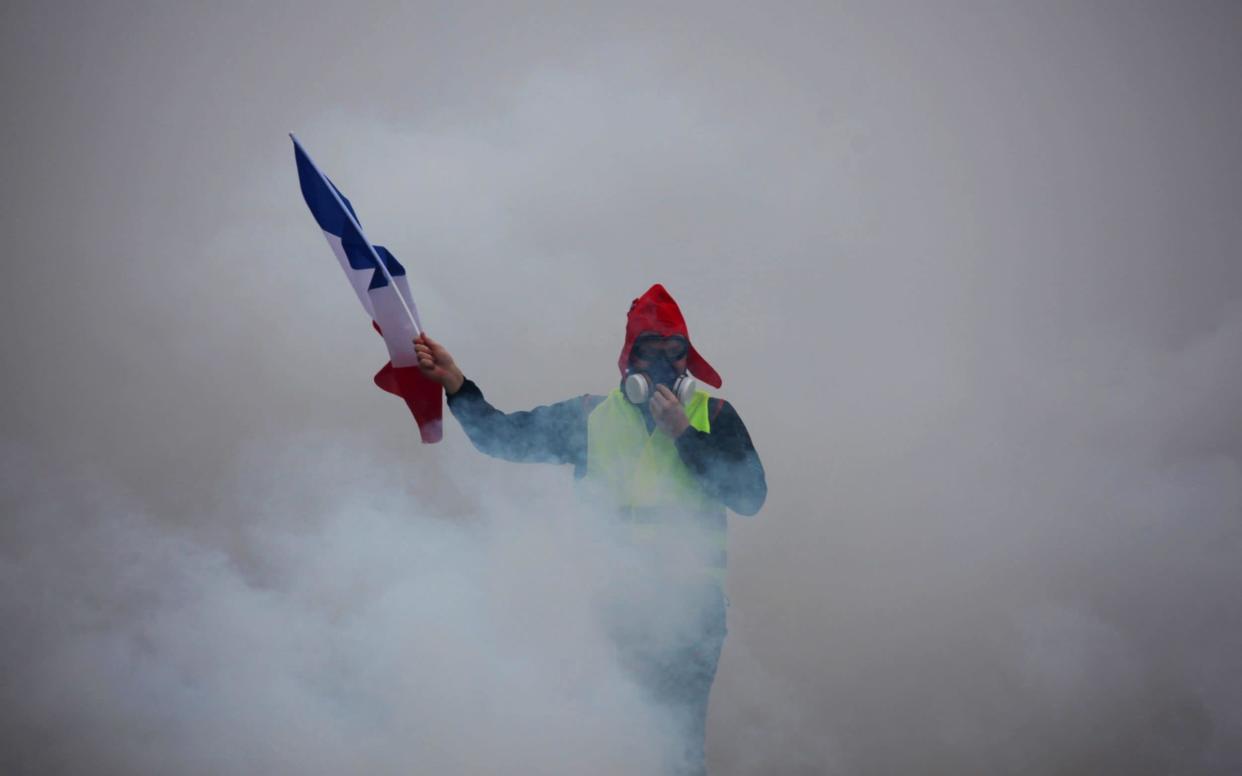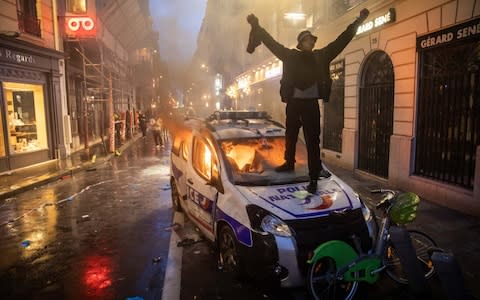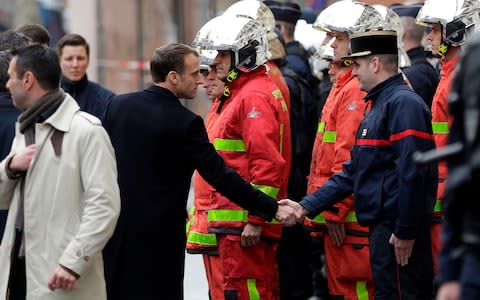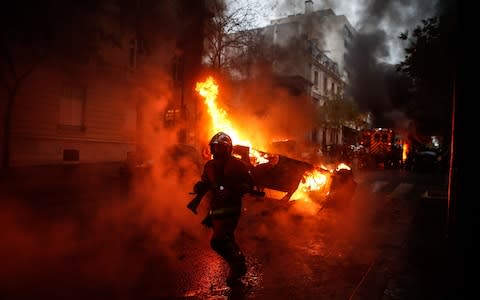French police call for army to help quell riots amid warnings of 'pre-revolutionary' unrest

President Emmanuel Macron of France is facing police calls to bring in the army to defend Paris from “yellow vest” attacks following last Saturday’s unprecedented riots in the French capital.
The police unions' plea came as the government held crisis talks with the leaders of all of France’s political parties, many of whom urged Mr Macron to instantly scrap “green” fuel tax hikes to avoid the country spiralling into a permanent state of insurrection.
The three-week revolt has exposed a deep malaise over high taxation, the price of living and a sense of social injustice. Much of the ire has been directed against Mr Macron with many protesters complaining he is an arrogant and out of touch “president of the rich”.
Several regional state prefects - civil servants normally sworn to silence - were cited by Le Monde as slamming the “Parisian arrogance” of his government, totally cut-off from poor provincial France and in a “technocratic bubble” that was “without feelers”. One was citing as dubbing the situation “pre-revolutionary”.

Edouard Philippe, the prime minister, was due to announce new conciliatory “measures” after the marathon talks in what observers are calling a “race against time” to prevent a fresh bout of violence. He has ordered a parliamentary debate on the crisis on Wednesday.
But in a worrying blow, all 10 "yellow vest" spokesmen who signed a tribune in the French press this Sunday detailing their demands declined to meet the prime minister on Monday night.
They cited "security concerns" after receiving death threats from other protesters who see no compromise possible.
Masked protesters fought running battles with riot police last Saturday in Paris, smashing and looting shops, setting fire to banks and even targeting cherished symbols of the French Republic - chief among them the Arc de Triomphe. Paris’ town hall said they caused up to €4 million in damage.
Four people have died in incidents linked to the revolt around the country, with one protester in Paris in a critical condition after being crushed by a giant railing in the Tuileries gardens.
Some 682 arrests took place around France, including 426 in Paris, with 57 people due to be receive fast-fast-track sentences yesterday (Mon). Some 133 people were injured, including 23 police in the capital.
With calls on social media for fresh protests in Paris next Saturday, several police unions urged the government to bring in the army as their men were “exhausted”. Petrol bombs, rocks, and even hammers were thrown at the weekend, while one officer narrowly escaped a lynching.
David Le Bars, secretary general of the police chiefs’ union SCPN, said soldiers should be drafted in as “reinforcements” to free up riot police against highly mobile vandals.
Up to 10,000 troops have been patrolling sensitive sites around France since the 2015 Paris terror attacks but have not been used to protect landmarks during demonstrations.
“We must accept to free up security forces from a static form. We’re no longer talking about classic demonstrations but a phenomenon of urban guerrilla,” said Mr Le Bars.
On Monday, Mr Macron had lunch with several CRS riot police who faced the rioters near the Champ-Elysées and they are due to meet the interior minister on Tuesday.
Jean-Claude Delage, head of the main officers’ union, Alliance, warned: “If it kicks off like that next Saturday, there will be injuries and deaths among security forces.”

With thousands of “yellow vests” continuing to block roads around France, some 4,000 lorries were stuck on the border or Spain, said local Catalan authorities.
Food industry representatives warned that the blockages risked causing €13.5bn over the festive season while hauliers said they had already lost €400m.
There were signs the movement was spreading to secondary schools, some 100 of which were at least partially blocked on Monday.
Despite Saturday’s violence, some 72 per cent of French continue to support the movement, a Harris Interactive poll suggested.
Opposition leaders called for radical measures to restore calm.
After meeting the prime minister, Laurent Wauquiez, head of the conservative Republicans party, said: “The president cannot keep on keeping quiet.”
“The only act that would restore peace would be to scrap tax hikes,” he said, calling for a referendum on the issue.

Olivier Faure, head of the Socialist Party, also demanded the restoration of a wealth tax Mr Macron partially scrapped at the start of his presidency - a move that critics claim proves he is on the side of the rich.
“He’s got to come down from Mount Olympus,” he said.
Marine Le Pen, head of the far-Right National Rally, warned Mr Macron had “only a few more hours” to stop the revolt spiralling out of control.
Without “important, audible and immediate” measures, she predicted, he risked becoming “the first president in half a century to give the order to fire on French people.”

